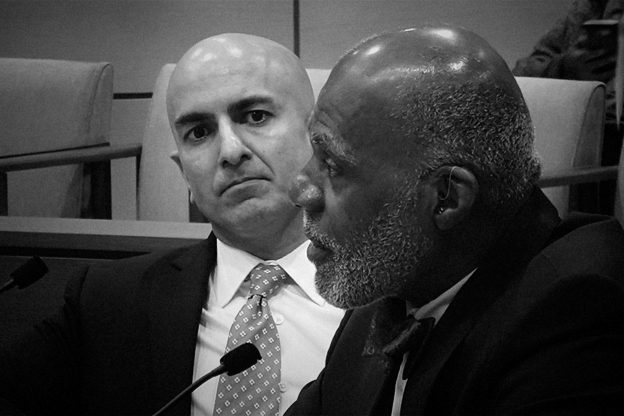

The Page Amendment is a Trojan horse, cont., part two
Part one is here. This is the second story at LeftMN that expands on the commentary that I wrote and which was published in the Minnesota Reformer. This time, I’ll discuss remedies under the Page Amendment. For convenience, here is the Senate bill version of the Page Amendment.
All children have a fundamental right to a quality public education that fully prepares them with the skills necessary for participation in the economy, our democracy, and society, as measured against uniform achievement standards set forth by the state. It is a paramount duty of the state to ensure quality public schools that fulfill this fundamental right. The duty of the state established in this section does not infringe on the right of a parent to choose for their child a private, religious, or home school as an alternative to public education. [the last sentence is not in the House version]
You should compare this to the language of the existing Education Clause, but I won’t reproduce that here; I’ve done that several times, including in the Minnesota Reformer.
There are no remedies stated in the Page Amendment, but some are hinted at in the last sentence. We’ll get to that more later, but first, who could sue for a claimed violation of the amendment?
The answer to that question is found in the difference between the words “children” and “system.” (The Education Clause uses the term “a general and uniform system.”) If the right belongs to a system of education, districts, students, and their parents can sue for adequate funding, just as was done in Skeen v. Minnesota (1993).
If, on the other hand, the right belongs solely to children, only they could sue to vindicate the right. Districts would have no standing to sue for adequate funding for their students, regardless of how shabbily the legislature treated them.
Districts wouldn’t have a leg to stand on anyway, since the Page Amendment removes the constitutional duty of the legislature to fund a system of public education. If you are a hard-pressed school district in, say, Ham Lake or Eyota, well, lotsa luck.
Naturally, if the legislature treated them shabbily enough, it might amount to a violation of the Page Amendment. Then what? That’s where the last sentence of the Senate version of the Page Amendment becomes important. The last sentence represents the true aspirations of the Page People.
Private and religious and home, oh my!
As sure as God made little green apples, every lawsuit ever brought under the Page Amendment would ask for vouchers or financial support for private, religious, or home schools. It’s quite transparent, really. The Page Amendment would give a court the justification for crafting such a remedy.
I can’t end without discussing what a miserable piece of draftsmanship the Page Amendment is. It tries to gloss over its terrible infirmities with words like “paramount” and “quality,” and “fundamental.” But please, don’t be distracted by virtue-signaling frippery and sloganeering.
E-12 education is already the largest line item in the state’s budget, accounting for about 40% of the budget. That sounds rather “paramount” and “fundamental” to me. And as to “quality,” the Page Amendment doesn’t actually provide it; it just sends the issue back to the legislature. (Unlike the current Education Clause which has language that has been litigated around the country, as the Cruz-Guzman decision notes.)
What’s a “quality” education? I don’t know; ask the chairs of the education committees in the legislature.
Update: As I’ve observed before, this is no way to write a constitution. The Page Amendment purports to create a civil right, but then it doesn’t, deferring to the legislature or governor.
– o O o –
N.B. Rep. Ruth Richardson announced at a press conference on April 4th that the Education Policy Committee would not hear the Page Amendment bill this session, which should mean it’s dead. I certainly hope so. Given the monumental amount of money that the President Neel Kashkari’s Federal Reserve Bank and the local foundations have sunk into the Page Amendment, however, it’ll be, like the Terminator, back, either this session or in the next.
Thanks for your feedback. If we like what you have to say, it may appear in a future post of reader reactions.

